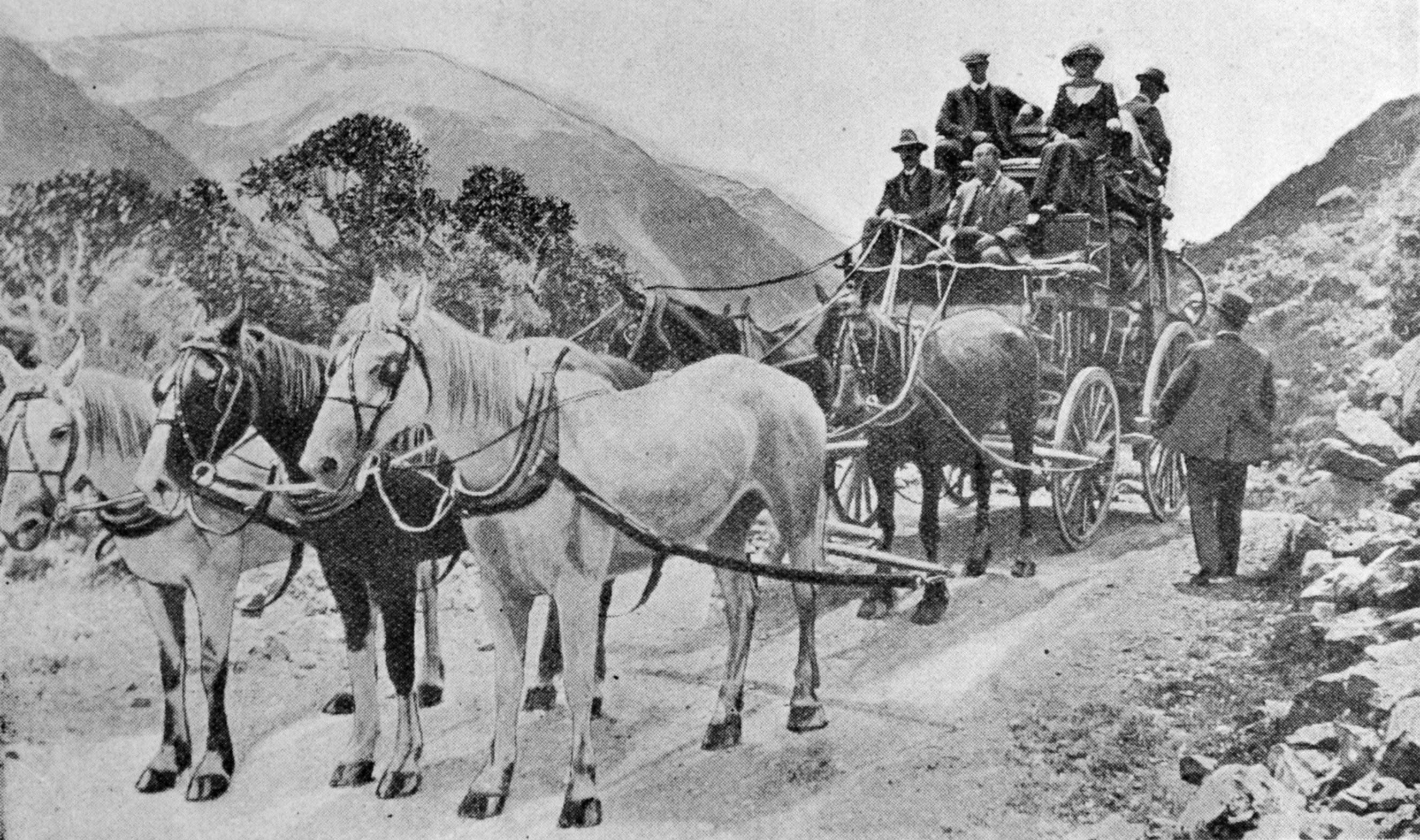
One hundred years ago today, the very last coach travelled from Arthur's Pass to Otira via the zig-zag, on August 3, 1923. The tunnel opened the following day.
Soon afterward, stagecoaches were being auctioned off en masse.
In their final days, the coaches were only travelling about 20km, linking up trains from the West Coast side with those on the Canterbury side.
Otira Stagecoach Hotel owner Lester Rowntree plans to harness up his team of horses with a replica stagecoach tomorrow from 11am to 2pm, running on the back road from the fire station to the hall. People do no need to book, but can just turn up for a ride. It will be pulled by his team of Clydesdale horses.
"It's a replica from Auckland, about 50 years old, of Cobb and Co," Mr Rowntree said.
"They were the buses of yesterday."

"It is possible that with the opening of the tunnel the stagecoaches will disappear from the West Coast road. Their passing will be regretted for sentimental reasons, as another link with the past will be snapped when they are withdrawn," the Christchurch Star wrote in 1923. For at least a decade, rail travel had been four times cheaper than stagecoach.
The Westland Industrial Heritage Park in Hokitika has the Hall's stagecoach, which is believed to have been the last to ferry passengers and mail over the gorge.
The first coach arrived in Hokitika from Christchurch in 1866 after a 40-hour trip spread over three days. By 1897 an average of 45 passengers a week travelled by coach each way.












